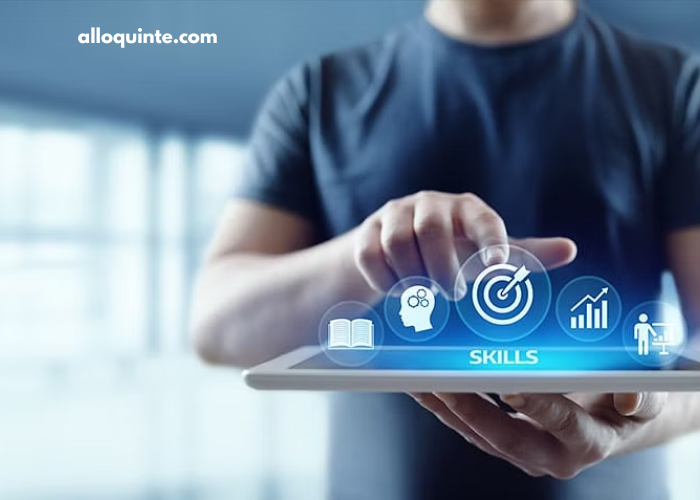In the ever-evolving landscape of technology, staying up-to-date with the latest trends is crucial for both individuals and businesses. The rapid pace of innovation has transformed the way we live, work, and interact, and staying ahead of the curve can mean the difference between success and stagnation. In this article, we will dive deep into the latest technological trends that are shaping our world. From artificial intelligence to blockchain, from 5G to quantum computing, we’ll explore how these technologies are revolutionizing industries and changing the way we live our lives.
Artificial Intelligence (AI)
Artificial intelligence has been a buzzword for several years, but it continues to be one of the most transformative technological trends. AI encompasses a wide range of capabilities, from machine learning and natural language processing to computer vision and robotics. Here are some key developments in AI:
- Machine Learning: Machine learning algorithms have become increasingly sophisticated, enabling computers to learn from data and make predictions or decisions without being explicitly programmed. This has applications in various fields, including healthcare (diagnosis and drug discovery), finance (algorithmic trading), and marketing (recommendation systems).
- Natural Language Processing (NLP): NLP allows computers to understand, interpret, and generate human language. This technology has powered virtual assistants like Siri and Alexa, as well as chatbots that provide customer support and automate tasks.
- Computer Vision: Computer vision enables machines to interpret and understand visual information from the world. This has applications in autonomous vehicles, facial recognition, and medical imaging.
- Robotics: Advances in robotics, coupled with AI, are leading to the development of more capable and versatile robots. These robots are used in industries like manufacturing, healthcare, and even delivery services.
AI is being integrated into various aspects of our lives, making it more efficient and convenient. However, it also raises ethical and privacy concerns that need to be addressed as the technology continues to advance.
5G Connectivity
The rollout of 5G networks is another game-changer in the tech world. 5G promises significantly faster data speeds, lower latency, and increased capacity compared to its predecessor, 4G. This technology has the potential to transform various industries:
- Telecommunications: 5G will revolutionize how we connect, enabling smoother video calls, faster downloads, and seamless streaming. It will also pave the way for the Internet of Things (IoT) by providing the necessary connectivity for a vast array of smart devices.
- Healthcare: The low latency and high bandwidth of 5G will enable real-time remote surgeries, telemedicine, and the exchange of large medical data sets. This has the potential to improve healthcare accessibility and outcomes.
- Autonomous Vehicles: 5G networks are essential for the development and operation of autonomous vehicles. They allow for rapid communication between vehicles, traffic infrastructure, and cloud-based AI systems, ensuring safe and efficient transportation.
- Smart Cities: 5G will play a crucial role in the development of smart cities. It will enable smart grids, connected infrastructure, and data-driven services that enhance urban living.
Despite its potential benefits, the widespread deployment of 5G also comes with challenges such as security concerns and the need for significant infrastructure upgrades.
Blockchain Technology
Blockchain technology gained fame as the foundation of cryptocurrencies like Bitcoin. However, its potential extends far beyond digital currencies. Blockchain is a distributed ledger technology that offers transparency, security, and immutability. Here’s how it’s influencing various sectors:
- Finance: Blockchain is revolutionizing the financial industry by enabling faster and more secure transactions. It has the potential to reduce fraud, lower transaction costs, and increase financial inclusion.
- Supply Chain Management: Blockchain can provide end-to-end visibility in supply chains, allowing for traceability and accountability. This is particularly valuable in industries like food and pharmaceuticals.
- Healthcare: In healthcare, blockchain can securely store patient records, facilitate data sharing among healthcare providers, and ensure the integrity of medical data.
- Voting Systems: Blockchain has the potential to revolutionize voting systems by ensuring the security and transparency of elections. It can prevent tampering and fraud in electoral processes.
- Decentralized Finance (DeFi): DeFi is a burgeoning ecosystem built on blockchain technology, offering financial services such as lending, borrowing, and trading without traditional intermediaries.
Quantum Computing
Quantum computing represents the cutting edge of computational power. Unlike classical computers, which use bits as the basic unit of data, quantum computers use quantum bits or qubits. This allows them to perform complex calculations at speeds that are currently unimaginable. Quantum computing has the potential to transform:
- Drug Discovery: Quantum computers can simulate molecular interactions and accelerate drug discovery processes. This has the potential to revolutionize the pharmaceutical industry.
- Cryptography: The incredible processing power of quantum computers poses a threat to traditional encryption methods. As a result, researchers are working on developing quantum-resistant cryptographic algorithms.
- Climate Modeling: Quantum computers can simulate complex climate models, helping us better understand and address climate change.
- Optimization Problems: Quantum computing excels at solving optimization problems, which have applications in logistics, finance, and operations research.
While quantum computing is still in its early stages and faces numerous technical challenges, it holds the promise of solving problems that are currently beyond the capabilities of classical computers.
Augmented and Virtual Reality (AR/VR)
Augmented and virtual reality technologies are transforming the way we interact with digital information and the physical world. AR overlays digital information onto the real world, while VR immerses users in a completely digital environment. Here’s how they’re making an impact:
- Gaming and Entertainment: AR and VR have revolutionized the gaming industry, providing immersive experiences that were previously unimaginable.
- Education and Training: These technologies are being used in education and training to create realistic simulations and enhance learning experiences.
- Healthcare: AR and VR have applications in medical training, pain management, and even surgical procedures.
- Architecture and Design: Architects and designers use AR and VR to create virtual walkthroughs of buildings and prototypes.
- Retail: Retailers are using AR to provide interactive shopping experiences, allowing customers to visualize products in their own space.
- Remote Work: AR and VR technologies are being employed to create virtual office spaces, improving remote collaboration.
Internet of Things (IoT)
The Internet of Things refers to the interconnectedness of everyday objects and devices through the internet. IoT has been growing steadily, and it’s poised to continue its expansion. Key areas of IoT impact include:
- Smart Homes: IoT devices like smart thermostats, lights, and security systems enhance convenience and energy efficiency in homes.
- Healthcare: IoT plays a significant role in remote patient monitoring and the development of wearable health devices.
- Agriculture: IoT sensors and devices are used in precision agriculture to monitor soil conditions, crop health, and equipment performance.
- Industrial IoT (IIoT): In the industrial sector, IIoT improves production efficiency, reduces downtime, and enables predictive maintenance.
- Environmental Monitoring: IoT is used for monitoring air and water quality, as well as tracking wildlife.
- Smart Cities: IoT infrastructure in smart cities includes connected traffic lights, waste management systems, and environmental sensors.




